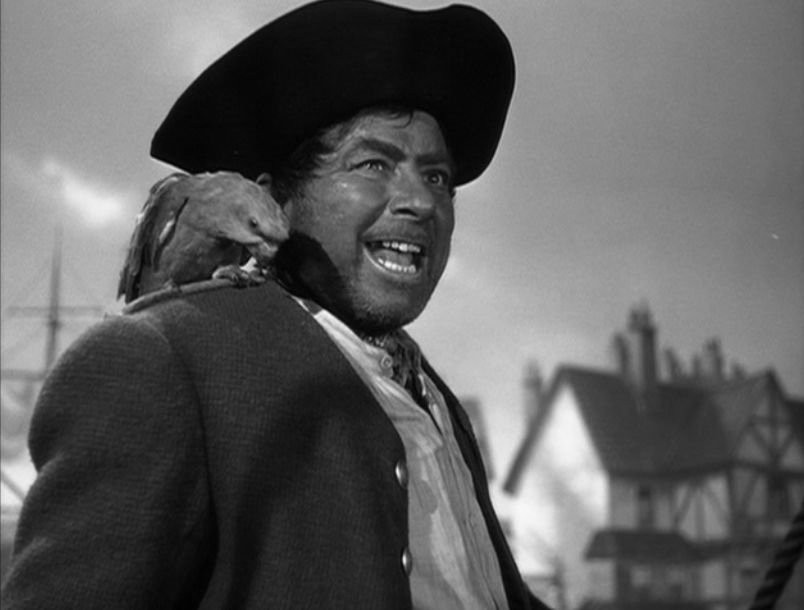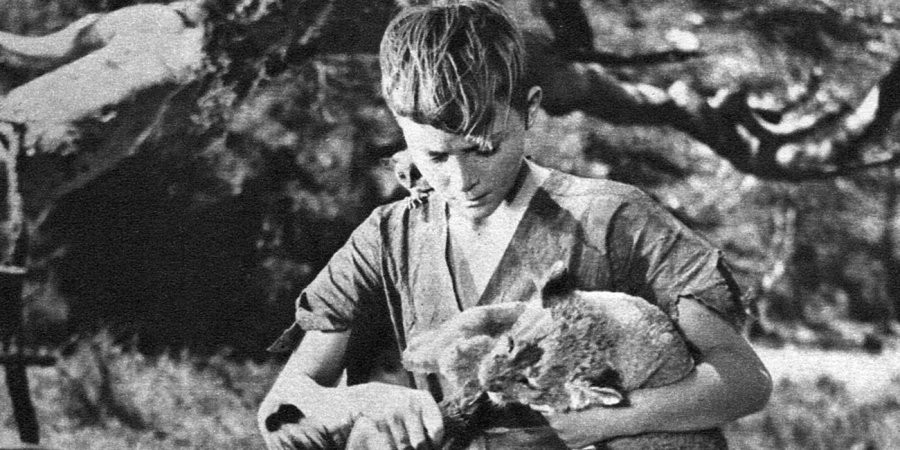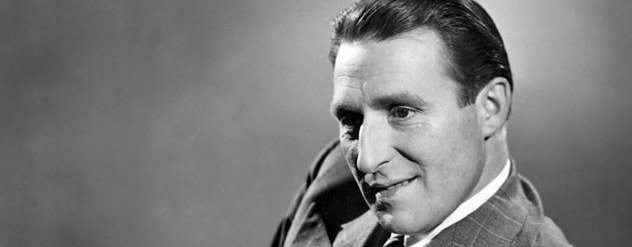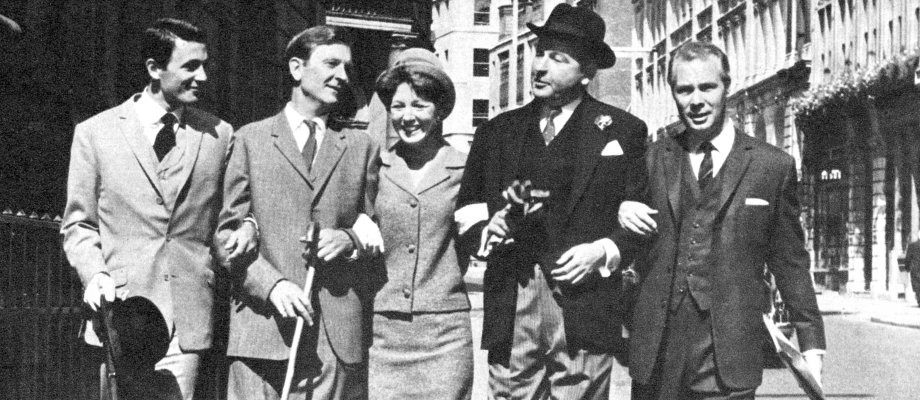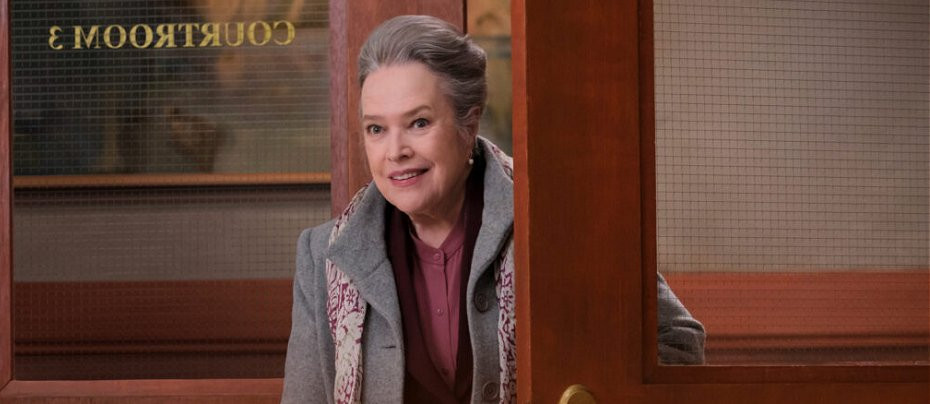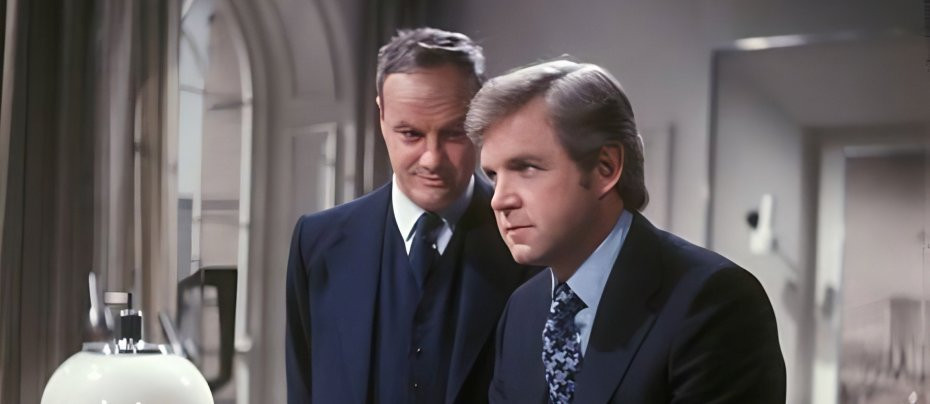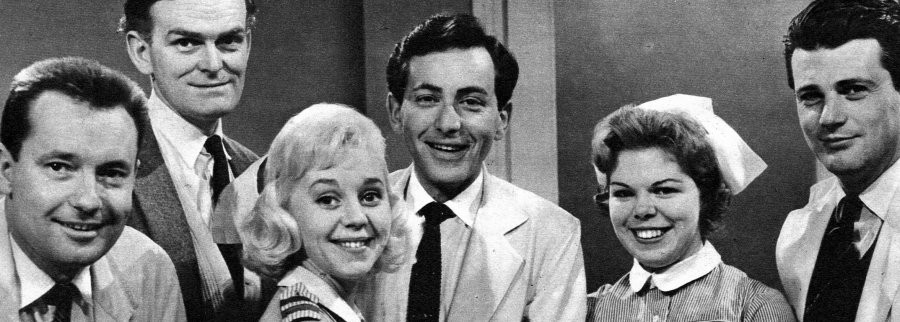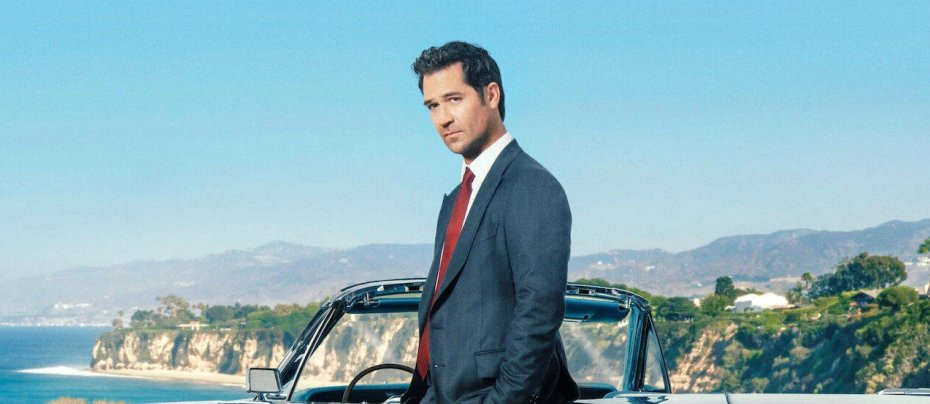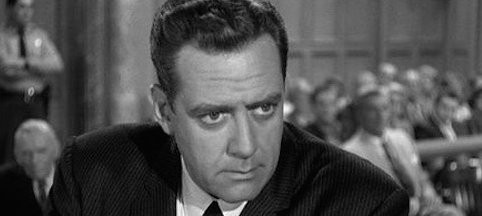
Perry Mason
1957 - United StatesMention a famous attorney in the US, and it's very possible the name Perry Mason will come up. True, Mason wasn't a real lawyer, but fans of the fictional character still believe he was. While Perry was a successful figure in books, movies and the radio, it was television that elevated him to a high plane. Thanks largely to the talents of Raymond Burr, the man who played him in the 1950's and 60's (not to mention the successful TV movies of the 1980's and early 90's), Perry became a barrister for all seasons.
Perry Mason was actually the brainchild of the late writer Erle Stanley Gardner, who was also an attorney himself. His first book with the character came in 1933, "The Case Of The Velvet Claws". (There would be a total of 82 Mason novels before Gardner's death in 1970.) Soon after came films and a radio show based on the fictional attorney. But it was television that made Perry Mason a household name.
Gardner was never happy with the way film and radio treated Perry, despite the fact he was involved in the movie and radio incarnations. It was television that gave Gardner a chance to make Mason more of an investigator and defender, closer to his printed vision. (The soap opera elements of the radio series, sans Perry Mason, became The Edge Of Night, a daytime drama that ran from 1956 until 1984 on CBS and ABC.)
Gardner formed Paisano Productions to oversee the Mason series, which was intended for prime time. NBC showed initial interest, but CBS offered the writer half the profits and creative control. It was no contest; Gardner signed with CBS. Gardner hired a very talented production crew to oversee the show. Gail Patrick Jackson, a former actress, was one of the few women to become executive producer of a television series in the 1950's; attorney Ben Brady, a line producer, set the guidelines for what Perry's character should be. He also led the stable of writers who had to churn out scripts week after week. (The main requirement for each script: Perry had to win EVERY time!)
Next came the actors. Film actor William Talman was tapped to play district attorney (and Mason's adversary) Hamilton Burger. Talman won critical acclaim as the hapless DA. But in 1960, he was arrested at a wild Hollywood party, where sex and drugs were allegedly flowing. Talman denied any wrongdoing; he said he just went to the party for a drink. CBS--not for the first time and certainly not the last-fired Talman before he could be tried. Later that year, Talman was acquitted of the charges; Raymond Burr and Earl Stanley Gardner were among those urging CBS to reconsider its decision to fire Talman. CBS agreed, and brought Talman back to Perry Mason-as an "occasional player". Sadly, after the show left the airwaves, Talman succumbed to lung cancer (he was a three pack a day cigarette smoker). His last appearance on film was a public service commercial for the American Cancer Society, urging people to stop smoking. Talman died in August 1968. He was only 53 years old. Bill Hopper, the son of newspaper gossip columnist Hedda Hopper, was passed over for the Perry Mason role. He was, however, chosen to be his assistant, Paul Drake, who investigated the cases Mason took on. (He was also the show's male "sex symbol"). It was always Paul who came into the courtroom with the last-minute evidence that would clear Perry's client and put the guilt on the person who actually committed the crime.
Della Street was Perry's faithful secretary. Gail Patrick Jackson turned down the role to work behind the scenes, but she saw Della's qualities in Barbara Hale, a model-turned-actress. Hale was chosen, says Jackson, for her ability to stay in the background and still help move the plot forward. As Della, Hale was the right choice. But she was not seen dating other men on-screen, leading viewers to believe that she and Perry were an item. Gardner and the writing team dropped slight hints to suggest Perry and Della were more than co-workers. Any hint of a sexual relationship between the two was deliciously ambiguous. (For the record, Gardner said if Perry and Della had a romance, he would have written it.) After the series ended, Hale returned to acting and became a spokeswoman for Amana appliances, selling fridges and a new device that would soon be in most American homes-the microwave oven.
Of course, Perry Mason needed the title character. Gardner and Jackson looked at dozens of potential actors, including future television stars Efrem Zimbalist Junior and Fred MacMurray; film actor William Holden was also considered. In the end, it was a man who originally tested for the Hamilton Burger role who won the part of Perry.
Raymond Burr had appeared in 90 films (including "Godzilla" and "A Place in the Sun"), usually playing the "heavy" or "bad guy" role. But it was his role as the limping prosecuting attorney in "Sun" that got the Mason team's attention. Burr was called in to audition for Hamilton Burger, but he also wanted to try out for Mason as well. The producers agreed, and Mason shed some weight before his audition. It was a success; Gardner took one look at Burr and told him that he had captured the character of Perry Mason better than anyone.
Perry Mason premiered in the fall of 1957 in what would become a "battle of the Perrys" against NBC's formidable Perry Como Show. Perry (Como) won the initial battle, but a growing number of viewers became hooked on Perry (Mason); by the second season, Mason was beating Como in the ratings. Perry Como moved to another timeslot, and NBC moved a new Western drama called Bonanza to do battle with Mason. The two shows were virtually tied when NBC shifted Bonanza to Sunday nights (where it would eventually become the top-rated series on television). Perry Mason zoomed into the top five during the 1961-62 season.
Perry Mason's formula was straightforward yet predictable: A murder would be committed in the first act; Perry and his team would get involved to chase down clues and talk to the involved parties in the second and third acts. The final act took place during an evidentiary hearing, where Perry not only had to clear his client, but to point the finger at the party who actually committed the murder. That was done in the last minutes, before the final commercial aired. After that final ad, Perry and his team would wrap up the case by filling in the missing pieces (what clue led them to finger the real killer?), then heading out to dinner to fortify themselves before next week's show. While "Mason" was outwardly a legal drama, it was also an effective mystery series.
Almost as much a trademark of the show was its dramatic opening theme, complete with jazz piano and composed by Fred Steiner. (Although known as Perry Mason's theme, the music's official title was "Park Avenue Beat".)
It should be noted that Perry Mason did lose at least one case. An October 1963 episode called "The Case of the Deadly Verdict" actually began in the courtroom with Perry's client found guilty of murdering her aunt and being sentenced to die in the gas chamber. (Of course, Perry did clear his client by the time the last commercial aired. Whew!) But Perry's involvement in finding the real killer and the last-minute surprises drew criticism from real-life attorneys and prosecutors. One district attorney told his colleagues at a 1957 convention that "in trying to select people for a grand jury, I know that prospective jurors get the wrong idea by watching the Perry Mason show week after week...they think the prosecutor and the police department are trying to convict someone who is innocent."
By the mid-1960's, Perry Mason began to look old-fashioned. CBS kept moving the show from timeslot to timeslot; by the fall of 1965 it aired opposite Bonanza, the Western it had beaten in the ratings several seasons before. By this time, Bonanza was the top-rated show on TV, and it had no problem vanquishing "Perry". The final "Mason" episode, "The Case Of The Final Fadeout", aired on May 22nd, 1966. Guest star Dick Clark was the murderer in a plot where the killing took place during the filming of a television series. There were a number of inside jokes during the episode; the most visible was the actor playing the judge-none other than Erle Stanley Gardner!
Perry Mason went on to have a long, successful and profitable life in syndicated reruns; by 1967, Burr returned to series television as Ironside, a handicapped police detective. The show was popular enough to run on NBC through 1975. (A short-lived series, Kingston: Confidential, which starred Burr as a publishing magnate who investigated crimes, was the final weekly series for the actor.)
In 1973, CBS brought back the Perry Mason character with a new drama appropriately titled The New Perry Mason. Actor Monte Markham took over the title role; Harry Guardino played Hamilton Burger. But viewers preferred the original; The New Perry Mason didn't last the entire season.
As the original continued to be popular in reruns, former network executive Fred Silverman and producer Dean Hartgrove realized there was a way to bring Perry back-a made-for-television movie with the original cast. Burr agreed to come out of retirement and reprise his most-famous role, as did Barbara Hale.
Perry Mason Returns aired in December 1985 on NBC; millions of viewers made it the highest-rated show for its week, proving the staying power of the franchise and the formidable talents of Burr. The new movie had Della Street accused of murdering her new boss (played by Patrick O'Neal) for his money. Perry-now a judge-decides to defend his former secretary. Perry tries to put together his old team, but learns that faithful Paul Drake had died. Drake, however, did get married and have a son, Paul Drake Junior-a writer and musician who wanted to follow in his father's footsteps. In a stroke of imaginative casting, the role of Drake Jr. was given to actor William Katt-the former star of the action-adventure series The Greatest American Hero and the real-life son of Barbara Hale and her former husband, Bill Williams. The success of Perry Mason Returns led to a second made-for-TV film, "The Case of The Notorious Nun". This movie has Perry, Della and Drake Junior defending a nun accused of killing a priest. Actor David Ogden Stiers (Charles Emerson Winchester of M*A*S*H fame) assumes the Hamilton Burger role-in this case, district attorney Michael Reston; he would play Reston in future "Mason" movies.
In all, 26 Perry Mason TV films were produced; the last one featuring Burr, "The Case Of The Killer Kiss", aired in November 1993, two months after Burr's death. (Several other TV films tried to carry on the Perry Mason influence without Burr; they were known as A Perry Mason Mystery with various "friends of Perry" leading the charge to clear the innocent. But without Raymond Burr (though with Hale and Katt), critics and viewers weren't interested and the Mason TV film franchise ended in 1995.
Still, the verdict stands: Perry Mason remains the most popular American legal drama of all time. A distant but worthy second is Steven Bochco's L.A. Law, which enjoyed an eight-season run versus nine for "Mason". And there have been other successful shows about attorneys and court, including Matlock; The Practice; the rather quirky Ally McBeal; and the situation comedy Night Court. In 1963, ABC aired a hybrid of cop show and courtroom drama called Arrest and Trial, which featured the detective who caught the suspect, and the prosecutor who tried to convict the suspect. It lasted one year, but proved to be ahead of its time-witness the long running Law & Order and its spin-offs.
Erle Stanley Gardner once noted that "Perry...represents a member of the legal profession who is fighting for human rights and liberties. I am hoping that people who see him will learn to appreciate the importance of the law and the necessity for fearless, intelligent lawyers who are, above all, primarily loyal to their clients".
Millions of Mason fans would sustain that argument.
Seen this show? How do you rate it?
Seen this show? How do you rate it?
Published on January 18th, 2019. Written by Mike Spadoni (2003) for Television Heaven.



